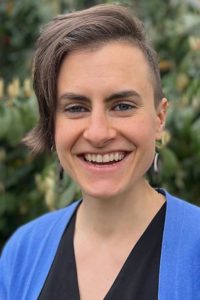
Attempting to eat healthy can be confusing, especially for those who seek guidance from talking heads and social media influencers who offer misinformation and conflicting advice. And health care professionals are often unable to set the record straight when diabetes patients come to them with questions.
Maureen Chomko, RD, CDCES, and Alison Evert, MS, RDN, CDCES, will help Scientific Sessions attendees clear up the confusion during the mini-symposium Top 5 Nutrition Controversies, which will be presented at 11:30 a.m. CT Friday, June 3, in La Nouvelle Orleans Ballroom B at the convention center. The session will also be livestreamed for virtual meeting attendees.
Evert and Chomko are dietitians and certified diabetes care and education specialists who hear nutrition questions from diabetes patients nearly every day. They designed the session for health care providers who have regular patient contact, including physicians, physician assistants, and nurses. Their goal is to help clinicians have quality conversations with their patients and then, if necessary, refer them to other resources to help them with their nutrition goals.

“Most, if not all of these nutrition topics we are discussing are clickbait online,” said Chomko, of Neighborcare Health. “Some social media and news sites will publish whatever will get them clicks and reader visits to their pages, whether it’s accurate or not. So, more than ever, we need clinicians to provide accurate answers to patients to combat the misinformation online.”
Chomko will discuss artificial sweeteners, food labels, net-carbs and fiber, and the safety of very low-carbohydrate eating plans.
“There are providers who are working off decades-old information because they don’t have time to review the massive amounts of data and information that we have compiled,” she said.
Evert will examine controversies surrounding meal and snack frequency, and the relative importance of macronutrients versus calories. She and Chomko have distilled the latest nutrition research and will help clinicians translate it into sound bites they can use with their patients. They will also help clinicians tailor those messages for individual patients.
“Our goal is to remind the physician that there’s no one perfect eating plan, that we have to individualize it,” said Evert, University of Washington Medicine Primary Care Clinics. “What we know from the research is that the eating plan that the patient sticks with is likely the one that they want to follow. So, you just have to make sure that it’s a healthy one.”
[sub-post-content]